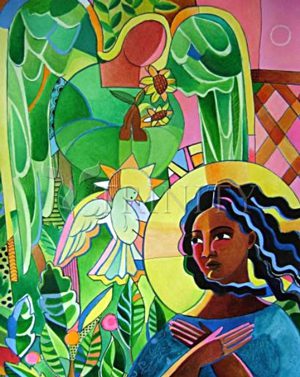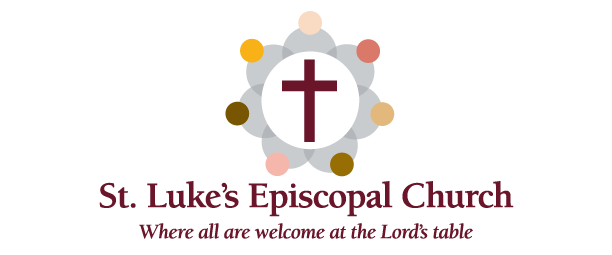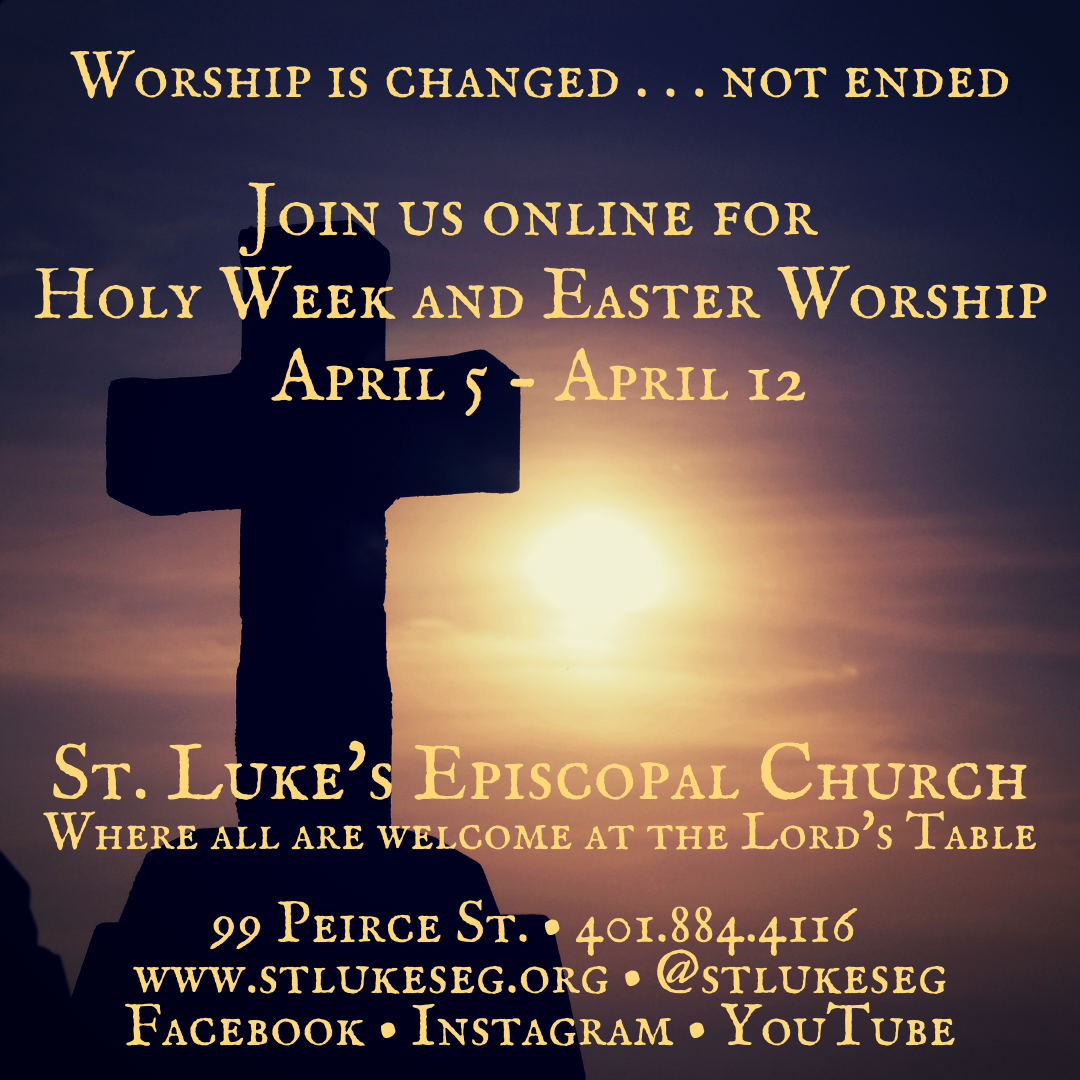Home > Lenten Blog 2021
I feel something new: hope.
March 25, 2021

Br. Mickey McGrath, OSFS: “Annunciation Quilt”
Isaiah 7:10-14 | Psalm 45 or Psalm 40:5-10 or Canticle 15 (or 3) | Hebrews 10:4-10 | Luke 1:26-38
Some years it feels strange and jarring to celebrate the feast of the Annunciation in the middle of Lent–like it doesn’t quite belong amongst our self-sacrifice and penance. And well, I just finished enjoying my Guinness for St. Patrick’s Day and stuffing myself with zeppoles for St. Joseph last week, so I’m starting to forget that it’s still Lent anyway.
This year, however, I truly can’t think of a better feast or theme for, well, right now. With the end of Lent approaching, warmer weather and sunshine creeping in, my children back in school, and vaccines developed and delivered, I feel something new: hope. It feels like we are on a precipice, not of returning to “normal” or our old lives, per se, but that something fresh is emerging from our pandemic isolation and loss.
Gabriel’s surprise visit to Mary certainly heralded a new and unexpected turn of events for her life, not to mention all of human history. I imagine the young peasant girls of the early church hearing this story and identifying with Mary, both shocked and awed that someone like themselves could be entrusted to bear God for the world.
Denise Levertov’s incredible poem on the Annunciation calls our attention to Mary’s courage and freedom in choosing to say yes:
She did not cry, ‘I cannot. I am not worthy,’
Nor, ‘I have not the strength.’
She did not submit with gritted teeth,
raging, coerced.
Bravest of all humans,
consent illumined her.
Mary’s bravery to accept this strange interruption from God can’t be reduced to meek obedience. In this case, Gabriel’s comforting words of “Do not be afraid” hardly make up for the role Mary is being asked to fulfill.
And isn’t this how we too experience the movement of the Holy Spirit? We turn to God for comfort and solace, which is offered in abundance, for sure, but we are also often asked to stretch ourselves beyond our comfort levels with God’s interruptions of our carefully planned paths. Levertov’s poem asks:
Aren’t there annunciations
of one sort or another
in most lives?
What strange and unexpected directions is God opening for us right now? And can we take heart from Mary’s boldness to take a deep breath and be open?
Every spring I wish I had had the foresight to plant bulbs in the fall, but this year, my nine-year-old son and I actually did it: 60ish bulbs of daffodils, tulips, and I forget what else in our postage-stamp-sized front yard. We have taken so much joy from the green shoots forcing their way towards the sun, even before all of the snow was melted. For Mary, the Annunciation didn’t somehow transplant God into her as a divine surrogate: her “yes” awoke the Spirit alive and well within her already, and allowed it to blossom into her son, Jesus, the embodiment of God’s love for the world. God is already doing this same work in our own hearts, waiting for us to notice and embrace it.
Although we have to go through the pain of Holy Week ahead, Mary’s Annunciation provides that glimpse of Easter hope we know is on the other side. As year after year, new life emerges in spring from the darkness of winter, that courageous love shown by a young girl can move us to embrace the unexpected calls from God again and again.
When our hearts are wintry, grieving, or in pain,
your touch can call us back to life again,
fields of our hearts that dead and bare have been;
love is come again like wheat arising green.
(from “Now the Green Blade Rises,” hymn by John M.C. Crum)
Angie Howard McParland


